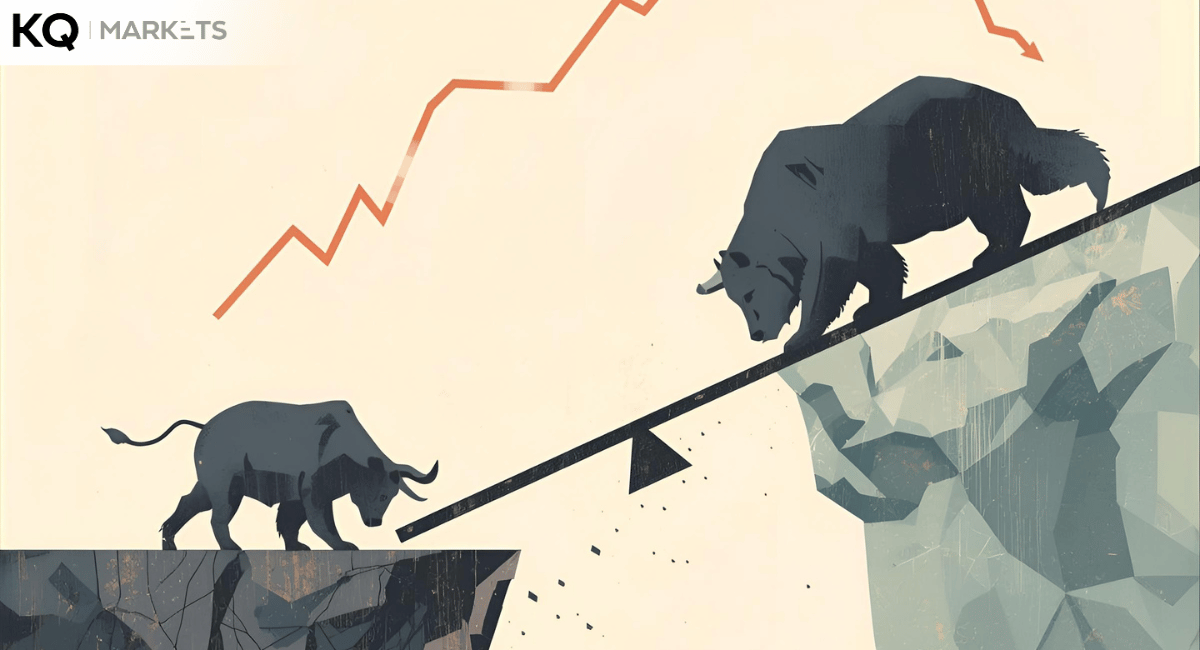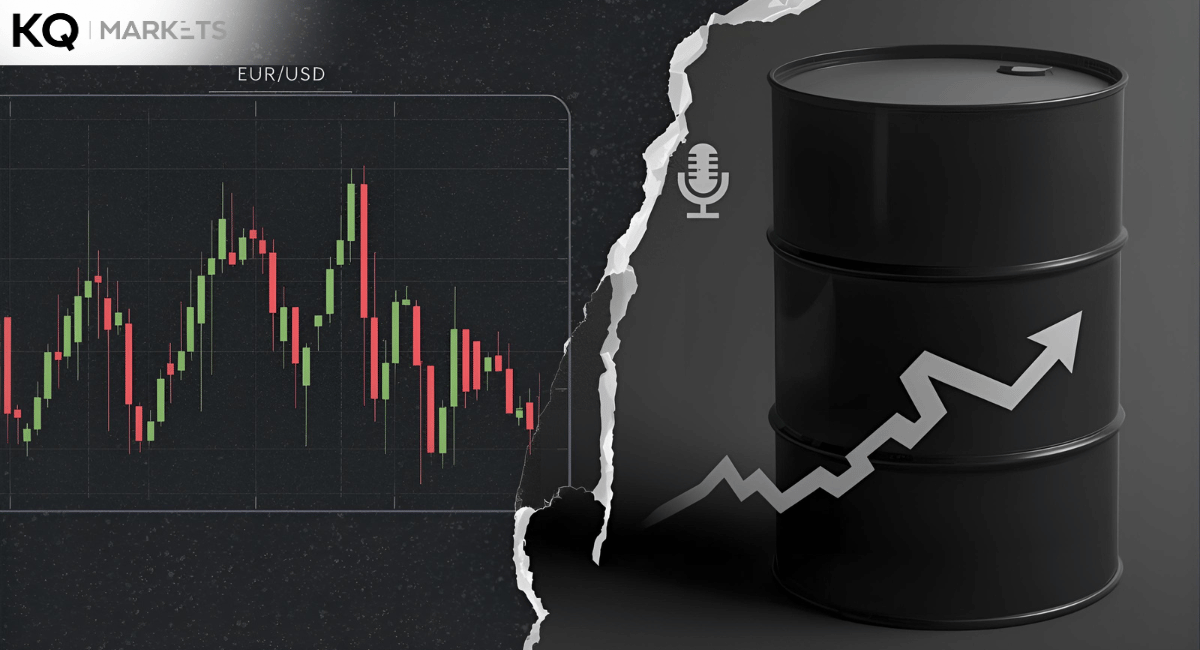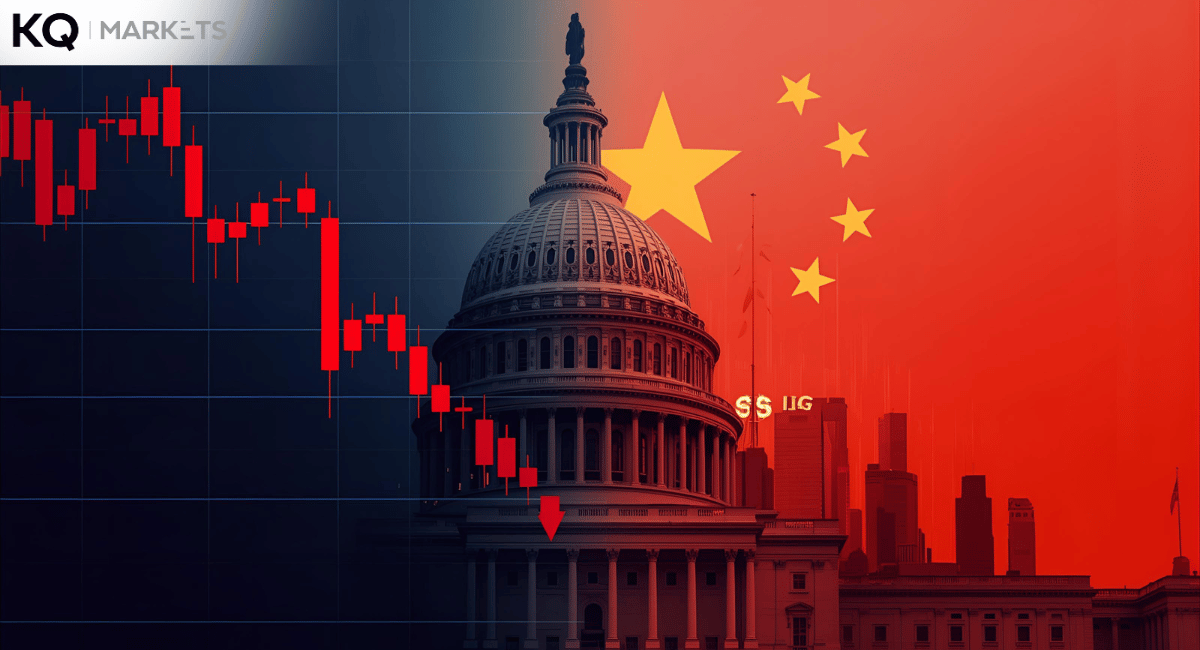The MSCI’s index of regional stocks is on track for its biggest single-day fall in over two weeks, completely wiping out Tuesday's gains. China’s main stock index fell to its lowest point since September, as investors are anxious over expected US tariff hikes. The S&P 500 also took a hit, dropping more than 1% on Tuesday after a report showed that inflation among US service providers reached its highest level since early 2023.
Market Sentiments and Economic Uncertainty
Chris Weston, head of research at Pepperstone Group in Melbourne, noted, “We have to wonder if there’s any reason to take risks today. I’d say there’s really not.”
With economic uncertainties looming, investor confidence across Asia is taking a hit. Chinese markets are showing increasing concern about the possibility of a deflationary trend. This comes at a time when credit yield premiums are close to their lowest levels since the global financial crisis, putting pressure on investments amid a flood of deals in the global debt market.
China's Bond Market and Policy Decisions
In China’s $11 trillion government bond market, investor sentiment is at an all-time low. The nation’s 10-year bond yields have plummeted to historic lows lately, now sitting over 300 basis points lower than their US counterparts, even with various economic stimulus efforts announced by President Xi Jinping’s government.
On Wednesday, China continued to tightly control the yuan through its daily reference rate, setting it at 7.1887 per dollar—1,528 pips stronger than what analysts predicted in a Bloomberg survey. The widening gap indicates that policymakers are keen on avoiding a swift decline of the yuan.
However, some market analysts are still hopeful about investments in China. “While it might be a struggle for policy support to keep housing prices rising, build household confidence, and deal with the pain from US tariffs, I believe there’s more upside than downside risk for Chinese stocks in 2025,” said Thomas Gatley, a China strategist at Gavekal Dragonomics. He particularly highlighted onshore stocks, which tend to benefit most from policy support and are less affected by the challenges posed by US tariffs.
Indian Markets and South Korea’s Samsung Resilience
Indian stocks fell as the government revised its economic growth forecast for the fiscal year to the weakest level since the pandemic, with economists suggesting that even this new prediction might be overly optimistic.
In South Korea, stocks are holding strong against the downward trend, thanks to Samsung Electronics Co. The tech powerhouse saw its shares climb after Nvidia's founder, Jensen Huang, expressed confidence in Samsung ironing out some pesky technical issues with its top-of-the-line memory.
European and US Market Insights
Over in Europe, equity futures took a hit after a couple of days of gains for the Euro Stoxx 50 Index. Deutsche Bank strategists, including Maximilian Uleer, believe that while US stocks are set to do well in 2025, European shares might just steal the spotlight.
“Surprise economic news keeps getting better, the political scene is stabilising, a fresh German government could bring more chances than challenges, and potential stimulus from China in the next few months could add some extra upside,” they pointed out.
In Asia, Treasuries didn’t change much after dipping across the board during US trading. The 10-year yield is hovering around its highest point since April after a six-basis-point jump on Tuesday.
“Since yields are now more than 100 basis points lower than they were three months ago, we expect this will help stabilise them in the weeks ahead,” wrote JPMorgan strategists Jay Barry, Jason Hunter, and Phoebe White.
Traders have pulled back on the idea that the Fed will lower rates until later this year. Just back in late September, a rate cut was fully expected by March. Meanwhile, new US data showed job openings reached a six-month high in November, thanks to a surge in business services, though other sectors reflected more mixed demand for workers.
Commodities and Cryptocurrency Updates
On the commodities front, oil prices climbed for the second consecutive day on Wednesday after a report showed US inventories were down again. Bitcoin is still hanging below $100,000.
This Week’s Key Events to Watch
Here are the main events scheduled for this week:
-
Wednesday:
- Eurozone's PPI and consumer confidence
- US ADP employment data, Fed's minutes, and consumer credit
- Fed's Christopher Waller speaking
-
Thursday:
- China’s CPI and PPI numbers
- Eurozone retail sales
- Federal holiday for former President Jimmy Carter’s state funeral
-
Friday:
- Japan’s household spending and leading index figures
- US jobs report and consumer sentiment
Market Recap: Latest Movements
Stocks
- S&P 500 futures: Up 0.3%
- Japan’s Topix: Down 0.6%
- Hong Kong’s Hang Seng: Down 1.1%
- Shanghai Composite: Down 0.8%
- Euro Stoxx 50 futures: Down 0.3%
Currencies
- The Bloomberg Dollar Spot Index stayed steady.
- The euro ticked up 0.1% to $1.0353.
- The Japanese yen hovered around 158.15 per dollar.
- The offshore yuan remained stable at 7.3465 per dollar.
Bonds
- The yield on 10-year Treasuries held steady at 4.68%.
- Australia’s 10-year yield rose by two basis points to 4.50%.
Commodities
- WTI crude oil climbed 0.6% to $74.72 a barrel.
- Spot gold remained stable.
Conclusion
The global financial markets continue to grapple with challenges posed by inflation, economic uncertainties, and geopolitical dynamics. While some regions face significant hurdles, there are still pockets of resilience and opportunities for growth.
KQ Markets offers traders an edge by providing insightful analysis and cutting-edge tools to make informed decisions. Stay ahead of market trends and leverage opportunities with confidence—join KQ Markets today.




